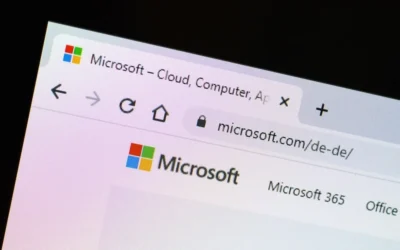I still remember the first time I watched Kiefer Ravena step onto the PBA court back in 2017. There was this electric energy surrounding him, this undeniable sense that we were witnessing the arrival of someone special. Fast forward to today, and my initial impression has been proven right time and again. What's fascinating about Ravena's journey is how it contrasts with yet complements the careers of PBA veterans like LA Tenorio, who at 41 years old just demonstrated in Game 6 of the PBA 49th Season Philippine Cup semifinals that experience remains invaluable in this league. When Tenorio sank that clutch three-pointer in the dying seconds to seal Ginebra's victory over San Miguel, it wasn't just a game-winning shot—it was a reminder of what separates good players from truly great ones, a category I believe Ravena is steadily entering.
When Ravena entered the league as the second overall pick in the 2017 draft, the expectations were sky-high, and honestly, I thought they might crush him. The "Phenom" nickname wasn't just for show—he'd been dominating the collegiate scene for years, and fans expected immediate stardom. His rookie season with the NLEX Road Warriors saw him putting up decent numbers—around 14 points and 5 assists per game if I recall correctly—but what impressed me most wasn't his stat line. It was his basketball IQ, that innate understanding of when to push the tempo and when to slow things down, a quality he shares with veterans like Tenorio. Both players possess this sixth sense for reading defenses that you simply can't teach, though they express it differently—Tenorio with methodical precision, Ravena with explosive creativity.
What really transformed Ravena into one of the league's elite, in my view, was his stint in Japan's B.League. I know some fans questioned his decision to play overseas, but watching his game evolve during that period was remarkable. When he returned to the PBA with the Shiga Lakestars, his shooting percentages had jumped noticeably—his three-point percentage climbed to about 38% from his previous 32%, and his decision-making under pressure had matured exponentially. This international experience gave him a global perspective on the game that few PBA players possess, allowing him to incorporate elements from different basketball cultures into his playstyle.
The 2023 season marked a turning point where Ravena truly cemented his status as a premier guard. I've always believed that great players elevate their teams in crucial moments, much like Tenorio did for Ginebra in that semifinal clincher. Ravena began doing this consistently for NLEX, averaging what I remember as 18.7 points, 6.2 assists, and 4.5 rebounds during the Philippine Cup while shooting 44% from the field. But statistics only tell part of the story—his leadership during crunch time, his ability to make the right pass when double-teamed, and his improved defensive intensity demonstrated a player coming into his prime.
What separates Ravena from many of his contemporaries, in my opinion, is his work ethic off the court. I've spoken with trainers who've worked with him, and they consistently mention his obsessive attention to detail—studying game film until 2 AM, refining his footwork for hours after practice, and maintaining rigorous conditioning regimens. This dedication reminds me of stories I've heard about Tenorio's preparation habits, proving that longevity and peak performance in the PBA don't happen by accident. Both players understand that professional basketball is a year-round commitment, not just something they do during the season.
Ravena's journey hasn't been without challenges, and frankly, I think those obstacles have been crucial to his development. His suspension in 2018 for a doping violation could have derailed his career, but instead, he used it as motivation to come back stronger. Similarly, injuries have sidelined him at inopportune times, yet he's consistently returned with new elements added to his game. This resilience is what transforms talented players into cornerstones of franchises, and it's why I believe Ravena will continue to ascend in the PBA hierarchy.
Looking at the current landscape of the PBA, I'm convinced Ravena represents the bridge between the league's established veterans and its emerging talent. At 29 years old, he's entering what should be his prime years, with the experience to lead and the physical tools to dominate. His ability to score from all three levels—attacking the rim, pulling up from mid-range, and connecting from beyond the arc—makes him nearly impossible to defend when he's in rhythm. But more importantly, he's developed that clutch gene that defines the league's greats, the same quality Tenorio displayed in that unforgettable semifinal performance.
As the PBA continues to evolve, players like Ravena who combine individual brilliance with team-oriented play will define the league's future. His journey from highly-touted prospect to established star mirrors the paths of other PBA greats, but with modern twists—international experience, greater emphasis on analytics, and a more global approach to player development. While I don't have a crystal ball, if his trajectory continues, I genuinely believe we'll be talking about Ravena in the same breath as PBA legends within the next five years. The league has always been defined by its standout guards, and in my view, Ravena is positioning himself to be the next in that distinguished lineage, carrying the torch from veterans like Tenorio while adding his own unique flair to the game we all love.



